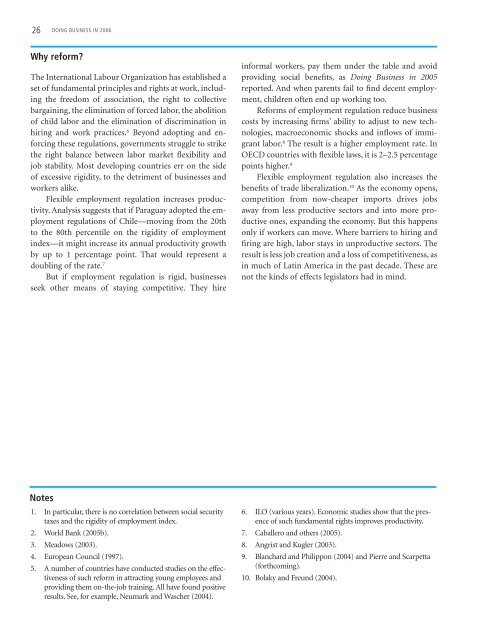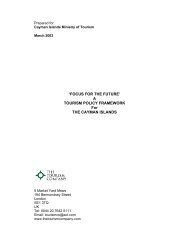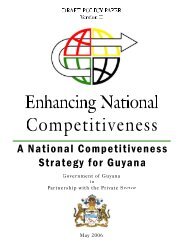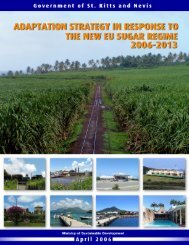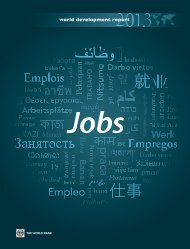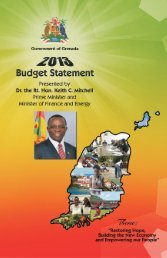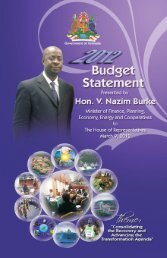Creating
Doing Business in 2006 -- Creating Jobs - Caribbean Elections
Doing Business in 2006 -- Creating Jobs - Caribbean Elections
You also want an ePaper? Increase the reach of your titles
YUMPU automatically turns print PDFs into web optimized ePapers that Google loves.
26 DOING BUSINESS IN 2006<br />
Why reform?<br />
The International Labour Organization has established a<br />
set of fundamental principles and rights at work, including<br />
the freedom of association, the right to collective<br />
bargaining, the elimination of forced labor, the abolition<br />
of child labor and the elimination of discrimination in<br />
hiring and work practices. 6 Beyond adopting and enforcing<br />
these regulations, governments struggle to strike<br />
the right balance between labor market flexibility and<br />
job stability. Most developing countries err on the side<br />
of excessive rigidity, to the detriment of businesses and<br />
workers alike.<br />
Flexible employment regulation increases productivity.<br />
Analysis suggests that if Paraguay adopted the employment<br />
regulations of Chile—moving from the 20th<br />
to the 80th percentile on the rigidity of employment<br />
index—it might increase its annual productivity growth<br />
by up to 1 percentage point. That would represent a<br />
doubling of the rate. 7<br />
But if employment regulation is rigid, businesses<br />
seek other means of staying competitive. They hire<br />
informal workers, pay them under the table and avoid<br />
providing social benefits, as Doing Business in 2005<br />
reported. And when parents fail to find decent employment,<br />
children often end up working too.<br />
Reforms of employment regulation reduce business<br />
costs by increasing firms’ ability to adjust to new technologies,<br />
macroeconomic shocks and inflows of immigrant<br />
labor. 8 The result is a higher employment rate. In<br />
OECD countries with flexible laws, it is 2–2.5 percentage<br />
points higher. 9<br />
Flexible employment regulation also increases the<br />
benefits of trade liberalization. 10 As the economy opens,<br />
competition from now-cheaper imports drives jobs<br />
away from less productive sectors and into more productive<br />
ones, expanding the economy. But this happens<br />
only if workers can move. Where barriers to hiring and<br />
firing are high, labor stays in unproductive sectors. The<br />
result is less job creation and a loss of competitiveness, as<br />
in much of Latin America in the past decade. These are<br />
not the kinds of effects legislators had in mind.<br />
Notes<br />
1. In particular, there is no correlation between social security<br />
taxes and the rigidity of employment index.<br />
2. World Bank (2005b).<br />
3. Meadows (2003).<br />
4. European Council (1997).<br />
5. A number of countries have conducted studies on the effectiveness<br />
of such reform in attracting young employees and<br />
providing them on-the-job training. All have found positive<br />
results. See, for example, Neumark and Wascher (2004).<br />
6. ILO (various years). Economic studies show that the presence<br />
of such fundamental rights improves productivity.<br />
7. Caballero and others (2005).<br />
8. Angrist and Kugler (2003).<br />
9. Blanchard and Philippon (2004) and Pierre and Scarpetta<br />
(forthcoming).<br />
10. Bolaky and Freund (2004).


